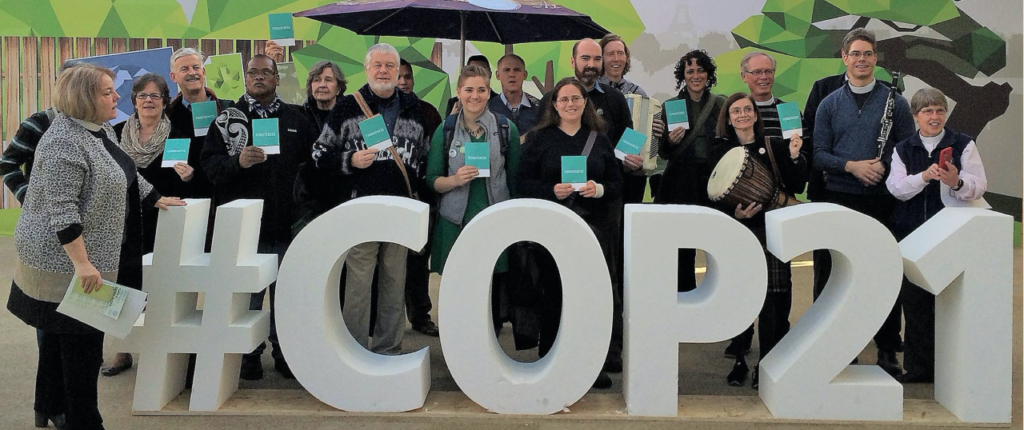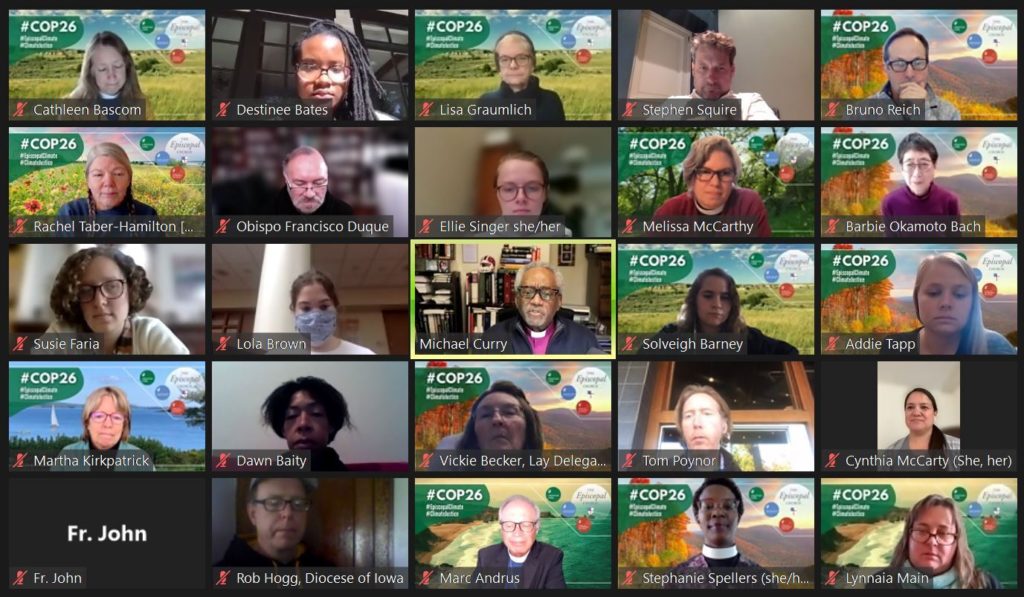How is COP26 going? Reflection by The Rt. Rev. Dr. Marc Andrus
How is COP26 going? Two answers to this question are readily available (in our dualistic world, is this a surprise?):
One: It’s great! Right off the bat, in Week One, big surprises of multi-national pledges were made on forests and on finance, prominently. Countries registered new, more ambitious Nationally Determined Commitments (NDCs) and quick models showed the world bending the Green House Gas (GHG) levels by the end of this century from one commonly-held estimate of 2.7° C above pre-industrial levels – a catastrophic level – to around 1.8° C, much closer to the hoped-for 1.5° (a level which still entails widespread suffering from climate events).
This sunnier view has persisted in Week Two with more surprise announcements, the biggest perhaps being that by the United States and China yesterday. The US and China startled the world by announcing that they would cooperate on climate change goals, and together demanded that the rest of the nations strive to make COP26 live up to its promise to be “the planet’s last, best chance.”
Two: “Blah, blah, blah,” as Greta Thunberg tweeted in Week One. Greta’s charge of empty promises being spewed out by heads of state, ministers, business leaders and others doesn’t begin to express the criticisms of COP26. Decried as being long on promises and short on actual plans and accountability mechanisms, the COP has also been bitterly criticized for “invisibilization.”
COP26, these critics say, has been marginalizing, in ways that mirror those of what our scriptures call “the world,” – contrasted with the Beloved Community – vulnerable people and the life of the Earth. COP26 has muted the voices of women, Black, brown and Indigenous people, citizens of small, less powerful countries already feeling the leading edge of climate change effects. There is tremendous anger, and there is equally tremendous energy for change, for bringing justice to the COP and to our world.
The Presiding Bishop’s delegation to the COPs does not show up as value-neutral people. Nor do we show up with the singular goal of reducing GHG emissions. We show up as followers of Jesus Christ, who is resurrected and active by the Spirit in the world. As followers of Christ we seek to be on the side of justice. So yes, we advocate for a more sustainable world with respect to the atmosphere, the waters, the soil.
We also care how a more sustainable life is attained. Early in 2021, the decision was made that the delegation would be entirely virtual, a decision that flowed from Bishop Michael’s response to the pandemic, in which he prohibited international travel during the year. A virtual delegation was a blessing: it allowed for a larger, more diverse delegation while eliminating environmentally detrimental travel.
But there was a worry; commentators on the COP noted that small, less wealthy countries and more vulnerable, underrepresented voices have relied on the solidarity of constellations of non-governmental organizations, like our delegation to help amplify these voices, to level the field. If we were not physically present, could we do this justice work? I think the consensus of the delegates is yes, through diligent showing up in the virtual spaces of COP26 we have advocated for the policies that express The Episcopal Church’s commitment to justice. These policies come from the resolutions of our General Convention.
I love being an advocate in the COPs not only as a Christian, but especially as an Episcopalian. As the Presiding Bishop’s delegation speaks, I think back to the countless hours that thousands of General Convention deputies and bishops have devoted, prayerfully, to creating the end result – resolutions that express our mind as the Episcopal branch of the Jesus Movement. I am filled with gratitude for all those who poured their smartness, their ardor, their hope and love into the resolutions that support our climate action in the COPs.
So, regarding the question, how is COP26 going, my answer is hopeful. I am hopeful not because of the headline announcements, but because of this great delegation, which has joined ecumenical, interfaith and civil society allies in calling for justice. We strive for the more excellent way, the way of faith, hope and love, and our hope is well founded, for love never fails.
Faithfully,
Marc Andrus
Bishop, the Diocese of California and Head of Delegation



